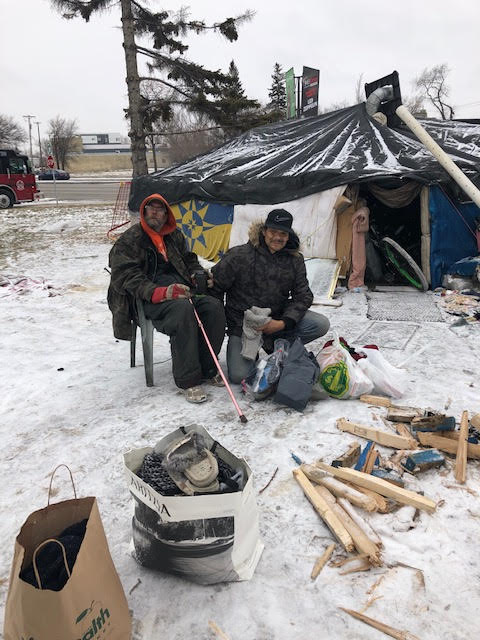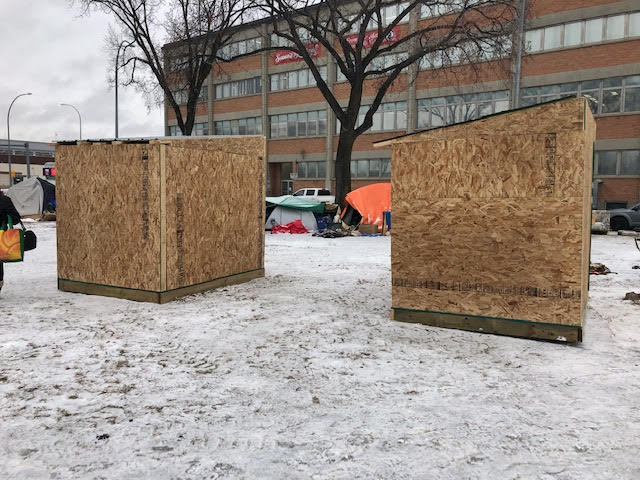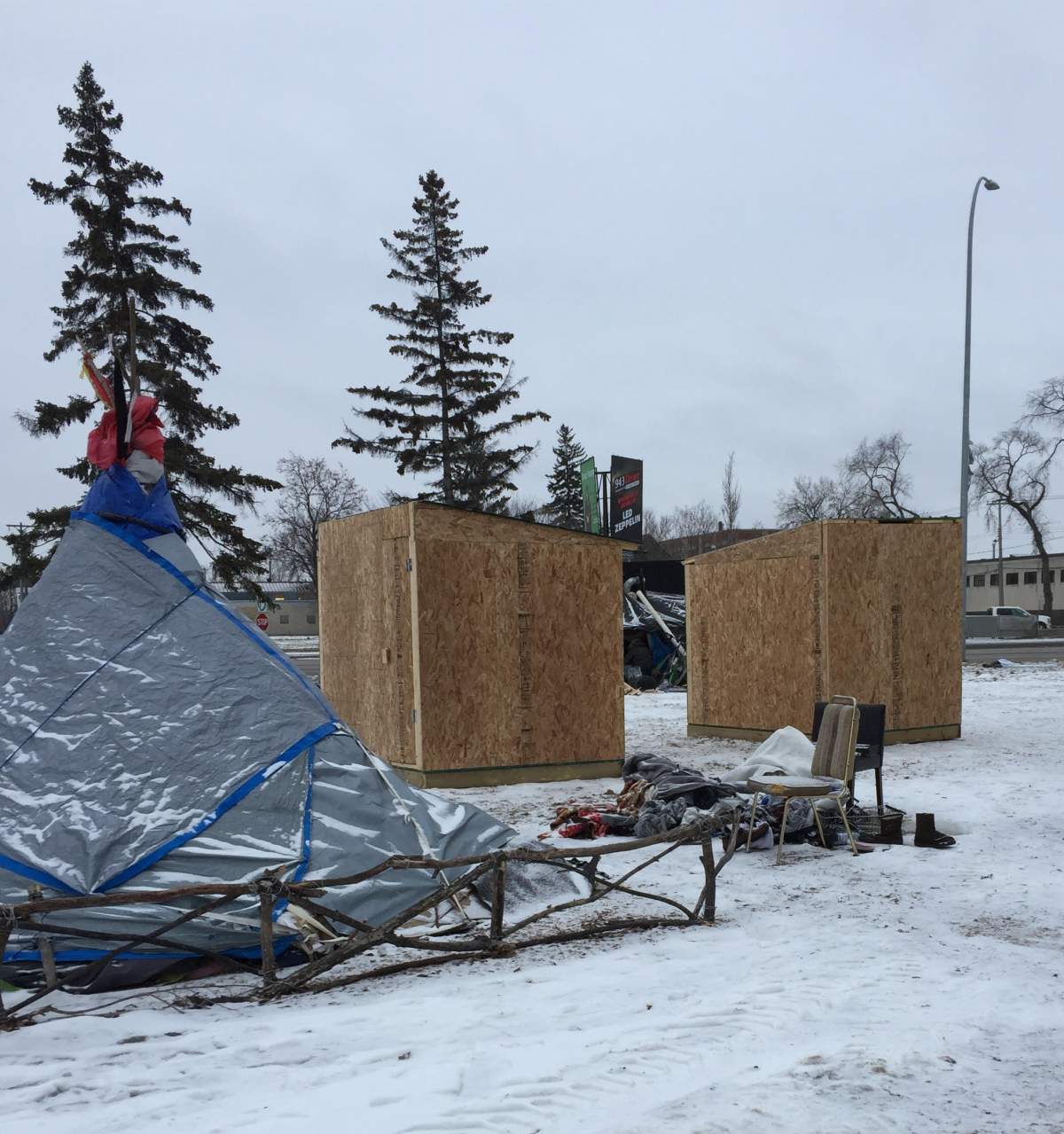A number of warming huts for homeless people on Winnipeg’s Henry Avenue have been torn down by police.

The huts, built by students at Stonewall Collegiate and installed by a volunteer organization called the Urban Knights and Ladies Peace Patrol, were intended to provide temporary shelter from the elements for veterans frequenting two of the city’s known homeless camps.
Sgt. Brian Chrupalo of the Winnipeg police told 680 CJOB the huts were set up Friday on city property without permission, and without giving the city so much as a heads-up about the project.
“They should have had permission if they were going to do an initiative such as this,” he said.
“Their heart was in the right place, just the effort wasn’t exactly what we were looking for.

Get daily National news
“We appreciate their efforts, but at the same time, the focus wasn’t in the right direction. It would’ve been a lot better if they’d contacted the End Homelessness Committee and had some conversations about what we’re doing with that organization.”
Chrupalo said there are a number of city by-laws around zoning for “tiny homes”, as well as sewer and water regulations that weren’t followed.
Police, he said, did their due diligence and made numerous efforts to contact Urban Knights and Ladies Peace Patrol founder Mike Belhumeur before taking action.
They had no luck via phone, email, or even hitting the streets and trying to reach him in person. 680 CJOB was also unable to reach Belhumeur for comment.
“The complaint came from someone in the community, saying ‘we understand people are camping, they’re homeless and everything… but now people have put up permanent structures’, and there’s a number of concerns Winnipeg police would have,” Chrupalo said.
“What if someone starts a fire? Who’s liable for what happens on that property?”
Chrupalo said the city has been working closely with the End Homelessness Committee to find long-term solutions to the homelessness problem, and while Belhumeur’s group was clearly well-intentioned, there’s a process.
“We’re looking for long-term solutions, which involve outreach programs, 24/7 safe spaces, and adequate low-income and supportive housing.”



























Comments
Want to discuss? Please read our Commenting Policy first.